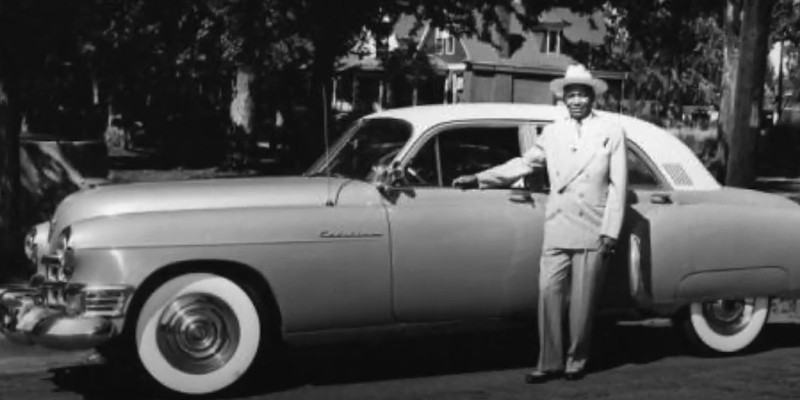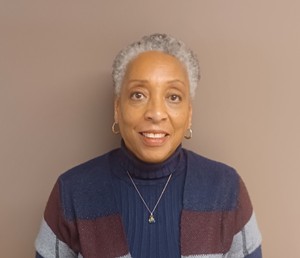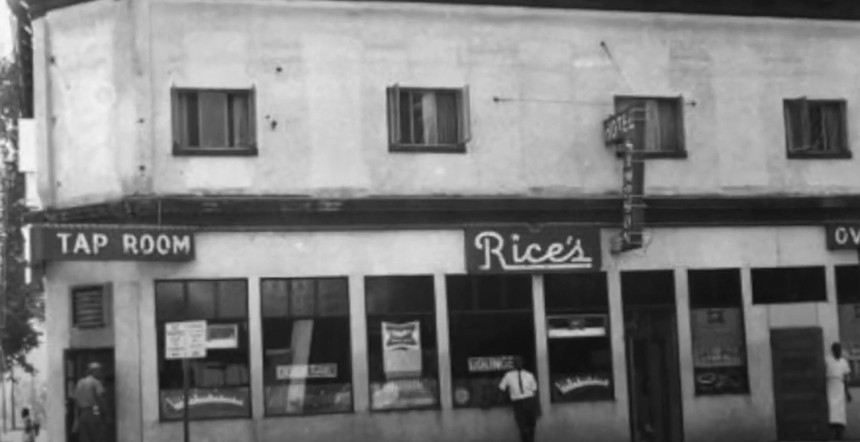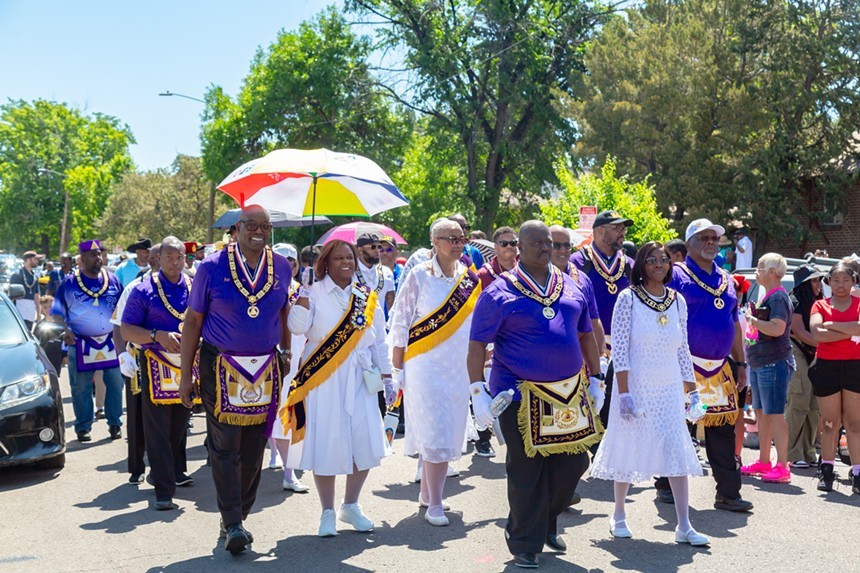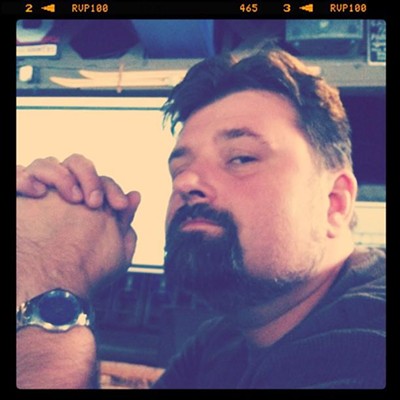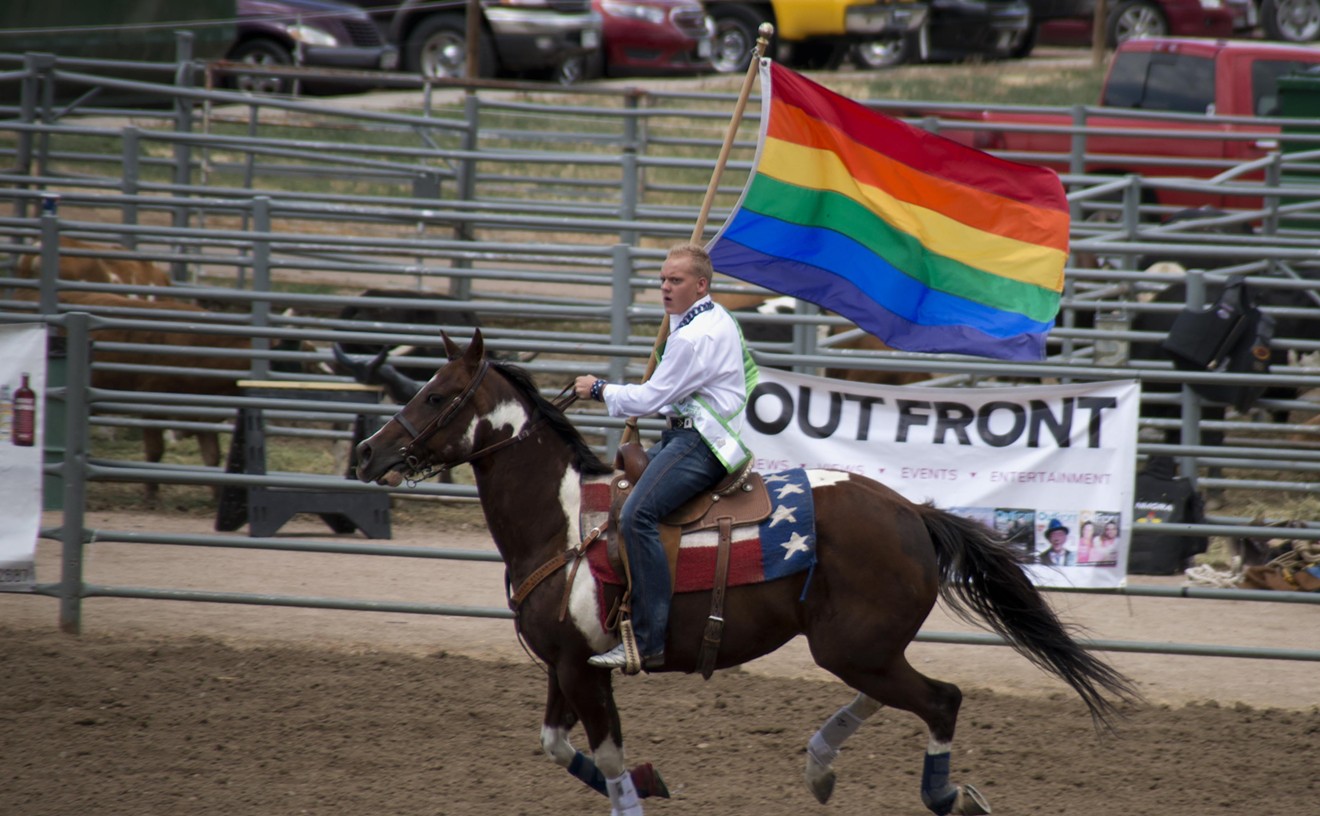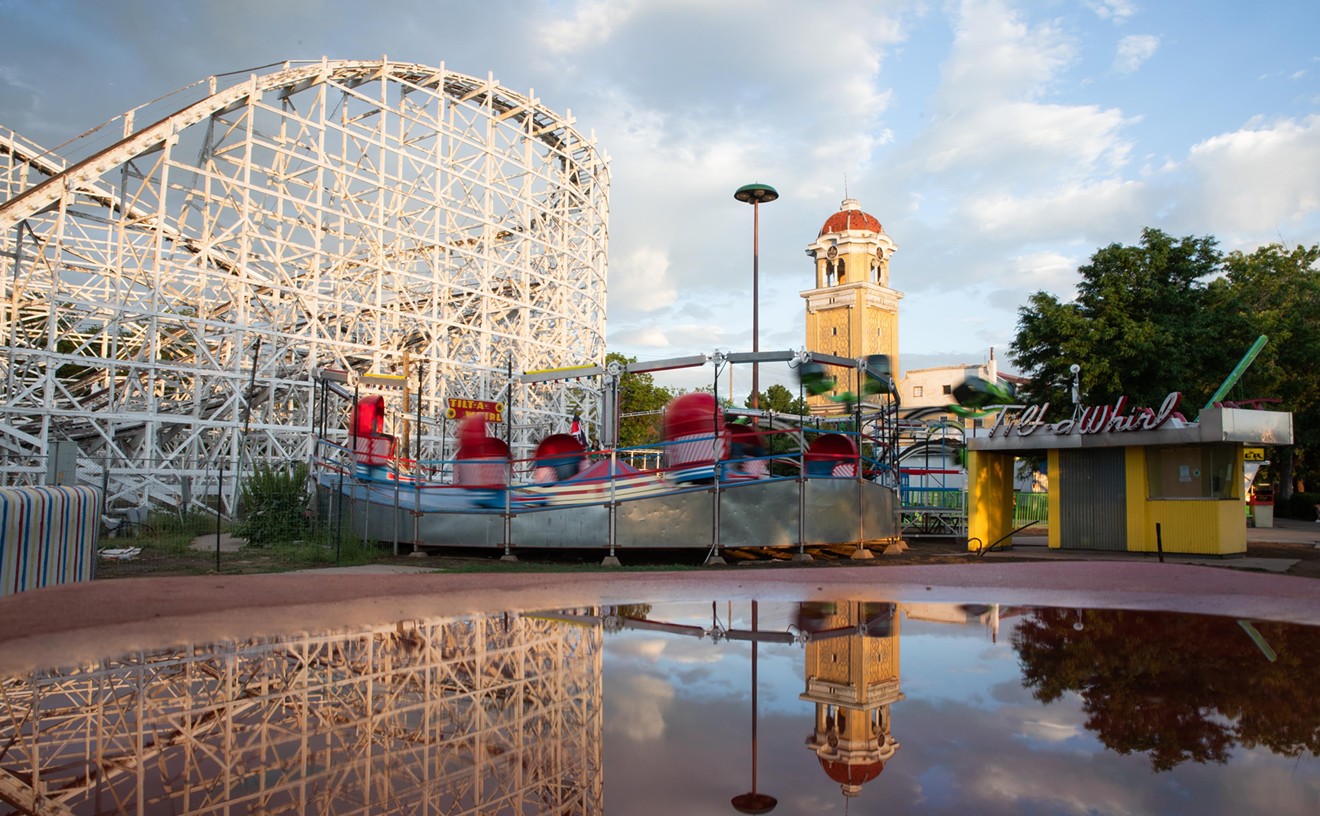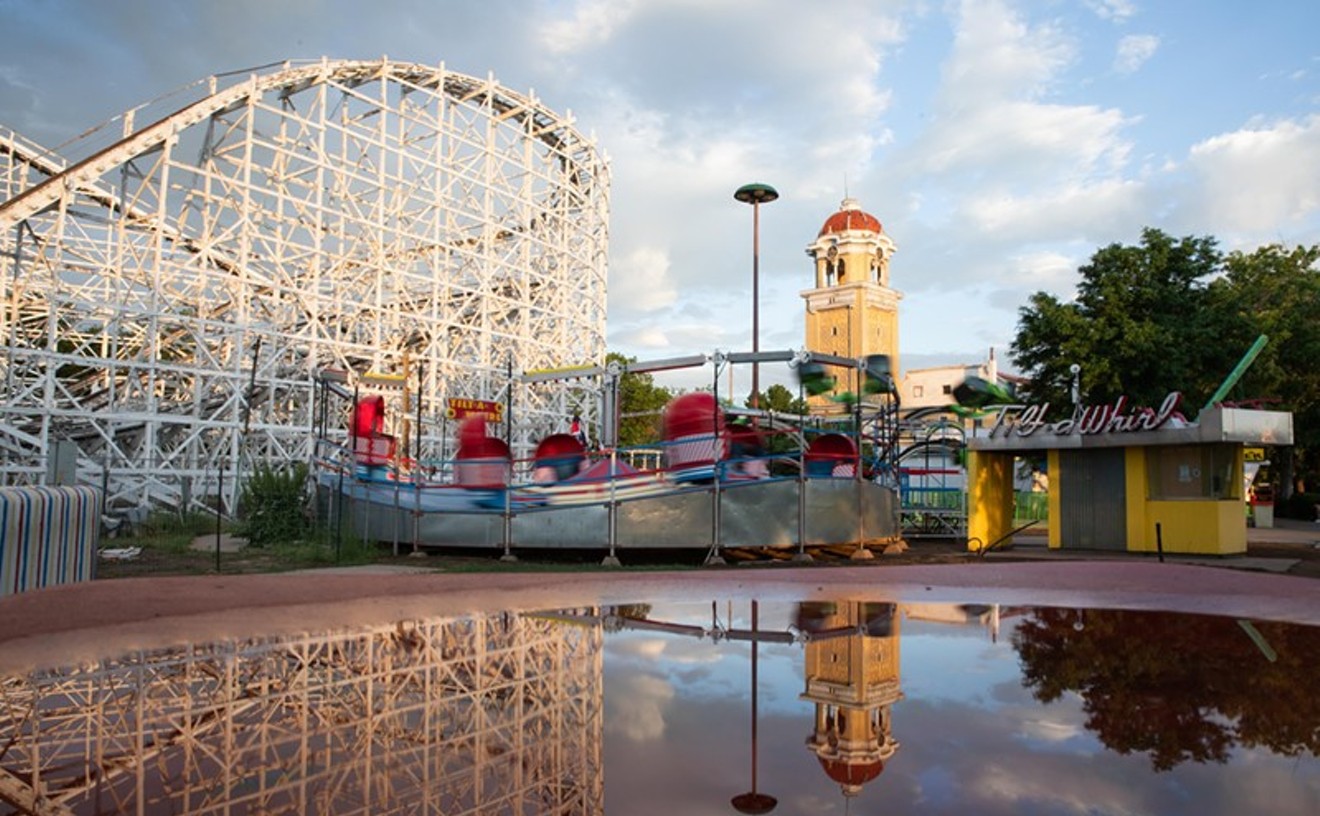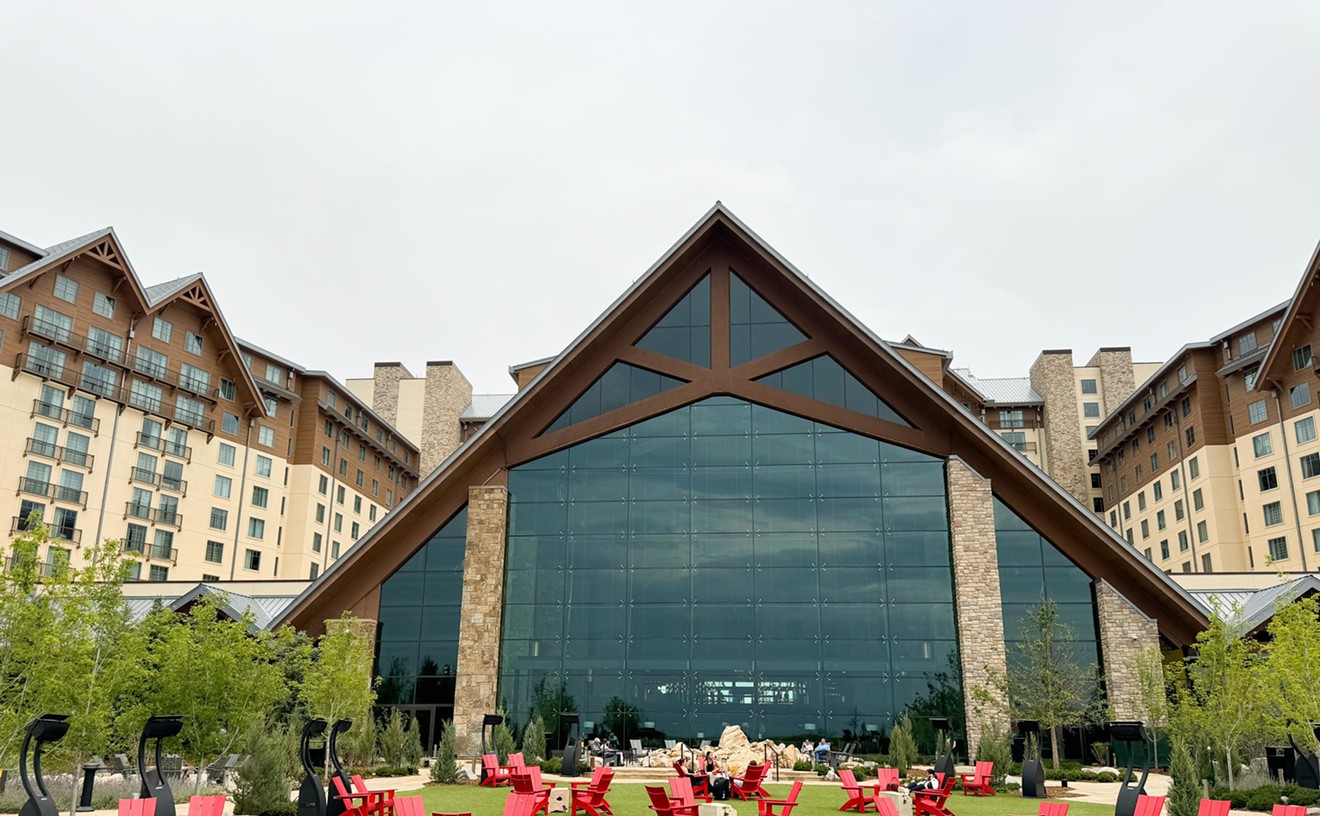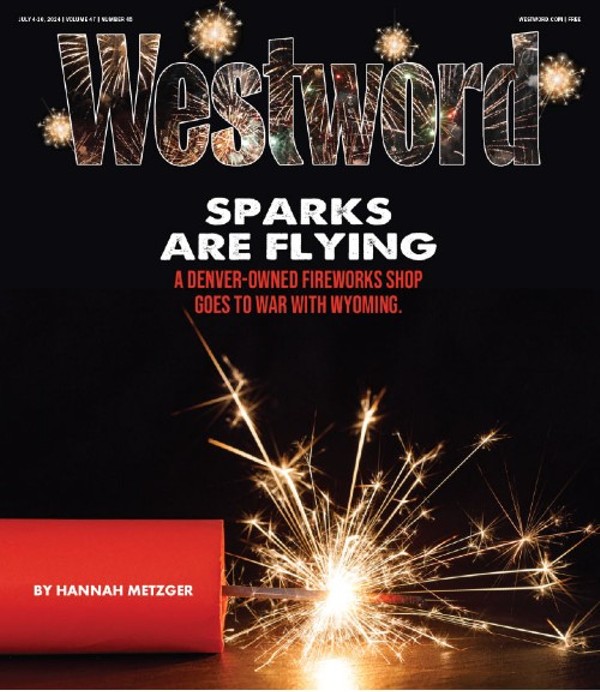Colorado historian and multi-generational Denverite Terri Gentry recalls a lot of wonderful things about the annual Juneteenth celebration in Five Points. The music. The food. The parades and the marching bands and the drill teams. "There's so much to it," she smiles. "It's really about reclaiming culture. Making sure it's not forgotten. Celebrations like this energize people to keep moving forward on our freedom, our human rights, our voting rights, and keeping people aware of what we need to confront now, even as we look back to June 19, 1865, and all that our ancestors had to do in order to keep those same things moving forward. There's still a lot to do."
Gentry is the Engagement Manager for Black Communities at History Colorado and serves on the board of directors of the Black American West Museum, where she is also a docent. She's also a lecturer, a writer, an educator and a facilitator — as well as someone with a familial legacy that touches on much of the Black experience in Denver's twentieth century. Her paternal great-grandfather was Dr. Thomas Ernest McClain, the first licensed Black dentist in Colorado, back in 1906. And she fondly recalls watching her friends eat pig-ear sandwiches from a little stand at 25th and Welton streets — a place they'd walk to from Manual High School during lunch. "They loved them," she says with a laugh, "but I just couldn't do it."
Not only is it important for people to come together to celebrate Juneteenth, Gentry says, but it's vital to understand all the history that came before it, and how it played out in the century-plus that followed.
"In looking at Juneteenth," she says, "you have to look at everything that led up to it." We can go as far back as 1501, she notes, when the slave trade to the Americas is said to have begun. And of course, there's the direct antecedent, Lincoln's Emancipation Proclamation, which took effect in 1863.
"It was a move to impact the Civil War," Gentry explains, "a way to impact the economy of the South. But it only applied to the states that were trying to secede from the Union. So they still had slavery in states like Tennessee and Kentucky and Delaware and Missouri. It was more complex than many people realize. The Union Army was going into areas and effectively spreading the word that these people had their freedom." But that effort took time.
"Texas is a unique part of that history," Gentry says. It was only in 1848 that the Treaty of Guadalupe Hidalgo ceded most of what's now the American Southwest — including about two-thirds of Colorado — to the United States following the Mexican-American War. "One of the issues you never hear about in our history," says Gentry, "is that Mexico gained its independence in 1821 and ended slavery by 1829. The problem was that Americans were moving west and bringing slavery back to what became Texas for many years."
Texas formally declared its independence from Mexico in 1836, during the war, and was eventually annexed into the U.S. in 1845. "They wanted to secede from Mexico first so they could continue the practice of slavery," Gentry explains. "The United States saw that as an opportunity, which was when they bought all that land for about $15 million" as part of the treaty, fully forming the state.
What may have been seen as an opportunity for the burgeoning United States was a disaster for Native peoples — both Indigenous Americans and Mexicans alike. "A lot of them lost their land," Gentry says. "A lot of them lost their citizenship. Some of them became enslaved. They were heavily and horribly impacted, and you never hear about that."
Perhaps because the Emancipation Proclamation was a military maneuver, we don't celebrate that as a date relating to freedom. Or the surrender at Appomattox, in April 1865. Instead, we celebrate June 19 of that year, because that's the day that General Gordon Granger led Union soldiers to Galveston, Texas, with General Order Number 3. "That's what declared that all people in Texas had been declared free," Gentry says. "But still, you could go through parts of west Texas and find people still enslaved up through the 1920s."
While Juneteenth itself was designed to celebrate that day in June 1865, Gentry emphasizes that it's more than just an anniversary.
"The challenge for me is that we're still fighting," she says. "We're still fighting for our freedom. We probably had more freedom for a brief moment in time back then. The 13th Amendment outlawing slavery was a critical piece of legislation — that was signed by Lincoln in 1865, just before he was assassinated.
"It was in 1866 that Schuyler Colfax — yes, the guy for whom Colfax Avenue was named — was Speaker of the House and helped push through the Civil Rights Act of 1866," she continues. "President Johnson vetoed that, but Colfax was able to override the veto. I always like to remind folks about Schuyler Colfax and who he was. He was an abolitionist. This man fought for our freedoms."
Denver's contribution to national celebrations of Juneteenth began in the 1950s, with a Five Points businessman named Otha P. Rice. "He was from Texas," Gentry says, "and he came up here and started Rice's Tap House at 2801 Welton Street. It was a restaurant and club, so you had a lot of musicians and artists coming in. He was the one who began celebrating Juneteenth on Welton in a formal sense. A lot of people were already marking the day amongst themselves — families getting together for a barbecue, that sort of thing — but he made it an event that took place at the Tap House." Rice would eventually come to be called the "Father of Juneteenth" here in Denver.
The event expanded to become one of the largest celebrations of its kind in the United States over the decades, as local businessmen gathered to support, publicize and grow its impact through their work with the Five Points Business Association. It's estimated that the 1983 Juneteenth celebration drew in some 60,000 people.
After a spike in gang violence in the ’80s, the Juneteenth event began to shrink — along with the clout of the Five Points Business Association as many of its members retired, moved out or passed on. The neighborhood was going through changes, and the once-massive Juneteenth celebration did, as well. Still, Gentry doesn't believe it ever fully went away. "It just went back to those smaller, looser events between families for a while," she says.
That all changed again in 2012, when Norman Harris — a fifth-generation Denverite with strong roots in the Five Points community — formed the Juneteenth Music Festival to bring back the full-on neighborhood event. Like Otha Rice before him, Harris wanted the whole neighborhood to get out and share the block with each other, laughing and eating and drinking and dancing. It's continued since then; the 2024 event June 15-16 brought live music and more than 200 vendors to 27th and Welton streets.
The Welton corridor may still be in the middle of its comeback, but Gentry believes it's well on its way. She lauds small businesses for once again leading the way — specifically, TeaLee's Teahouse and Bookstore, at 611 22nd Street, and the new location of Welton Street Cafe, soon to open at 2883 Welton, just up and across the street from its original location.
But again, Gentry says, it's not just about supporting the neighborhood or celebrating a mark in history. "It's also about education," she says.
"It's so important for people to understand what our experiences have been. If we learn more about Juneteenth and study the history surrounding it, perhaps that offers a perspective that encourages more people to stand up and fight alongside us," she concludes. "To understand that there are people in our country that are doing everything they can to take us back to 1865 and even before that, to squash all our freedoms. People from all walks of life are still having to confront this. Native American nations. People of Mexican ancestry. African Americans. People of the Jewish or Muslim faith. The LGBTQ+ community. I feel like the more people understand this history, the more they'll fight for every person. For humanity, for equity. For giving each individual the opportunity to live their best life."
[
{
"name": "Air - MediumRectangle - Inline Content - Mobile Display Size",
"component": "12017618",
"insertPoint": "2",
"requiredCountToDisplay": "2"
},{
"name": "Editor Picks",
"component": "17242653",
"insertPoint": "4",
"requiredCountToDisplay": "1"
},{
"name": "Inline Links",
"component": "18838239",
"insertPoint": "8th",
"startingPoint": 8,
"requiredCountToDisplay": "7",
"maxInsertions": 25
},{
"name": "Air - MediumRectangle - Combo - Inline Content",
"component": "17261320",
"insertPoint": "8th",
"startingPoint": 8,
"requiredCountToDisplay": "7",
"maxInsertions": 25
},{
"name": "Inline Links",
"component": "18838239",
"insertPoint": "8th",
"startingPoint": 12,
"requiredCountToDisplay": "11",
"maxInsertions": 25
},{
"name": "Air - Leaderboard Tower - Combo - Inline Content",
"component": "17261321",
"insertPoint": "8th",
"startingPoint": 12,
"requiredCountToDisplay": "11",
"maxInsertions": 25
}
]

